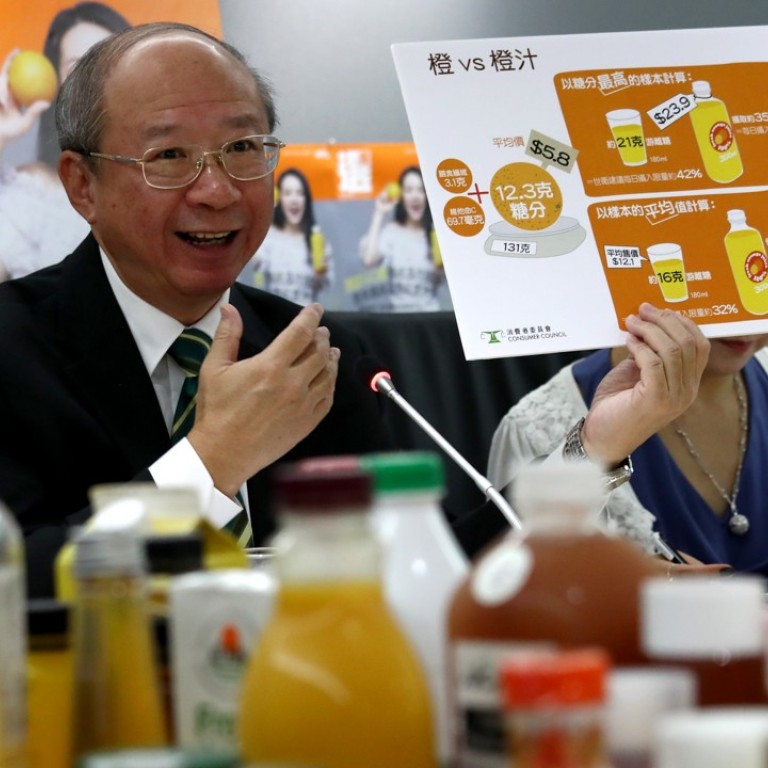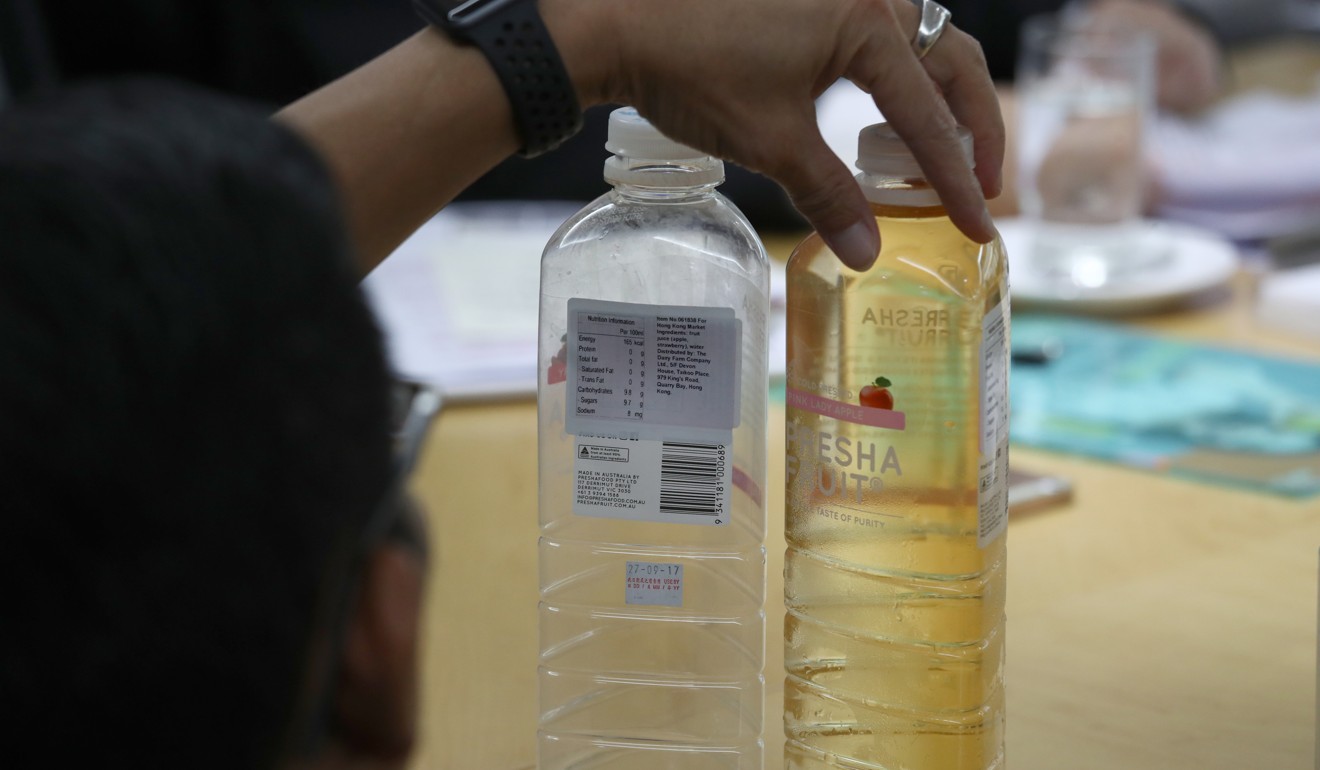
Some juices sold in Hong Kong contain toxins found in decaying fruits, tests show
Tests on 40 juices reveal some drinks contain the toxin patulin, ingredients not found on labels and high amounts of sugar
Fruit juices sold in Hong Kong contain toxins, preservatives and high levels of sugar, and are often less nutritious than their labels claim, the city’s consumer watchdog said on Monday.
And the Consumer Council urged the public to “never” use fruit juice as a substitute for eating whole fruits, after the tests which resulted in some brands being pulled from store shelves.
The council tested 40 juices found at different stores in the city.
Beware dodgy websites when booking hotels, Hong Kong Consumer Council urges
One apple juice, and one apple and strawberry blended juice from Australian manufacturer Preshafruit, were found to contain the fungal toxin patulin at levels of 67 and 138 micrograms per kilogram respectively.
The level of patulin, commonly found in decaying fruits and vegetables, exceeded the government guideline limit of 50 micrograms for every kilogram.
Patulin can hurt the immune system, damage nerves and stunt growth in infants, according to a study by the UN and the World Health Organisation.

“In these two cases, both products have been removed from the shelves,” Hui said.
A distributor of the two juices contacted Preshafruit to follow up on the matter, the council said.
The tests also revealed that three juices, from City’super, Tesco and Hyaku, which all claimed to be free of preservatives, did contain preservatives. The levels were within legal limits.
A City’super agent told the watchdog that apple jam containing sorbic acid – a preservative – was added to the juice.
According to the council, the company already vowed to ensure that the juice would not contain ingredients unlisted on the label.
An agent for Tesco promised to revise the labels, while an agent for Hyaku said the company planned to conduct regular tests to make sure ingredients in its juice match the label.
Cancer-causing chemicals found in children’s nail polish, Hong Kong’s Consumer Council says
The council also reminded Hongkongers that drinking fruit juice is not a substitute for eating fruit.
“It’s better to eat fruit than to drink juices as substitutes,” Professor Michael Hui King-man, a council spokesman, said. “In terms of healthy substances such as Vitamin C and fibres, fresh fruits have substantially higher contents than juices.”
Meanwhile, the Centre for Food Safety, which sets government standards, said the sugar content of pre-packaged juice cannot be 20 per cent higher than stated on the label. Vitamin C and dietary fibre content cannot be 20 per cent lower.
The tests showed a “worrying” discrepancy, larger than allowed under the centre’s guidelines, for 14 of the 40 samples. In one extreme example, berry juice made by Shine and Shine was found to contain 292.3 per cent more sugar than listed on its label. That juice has also been taken off the shelves, the council said.
None of the 40 samples – priced from HK$17.5 to HK$76.9 – were found to be a low-sugar food under nutrition standards in Hong Kong.

